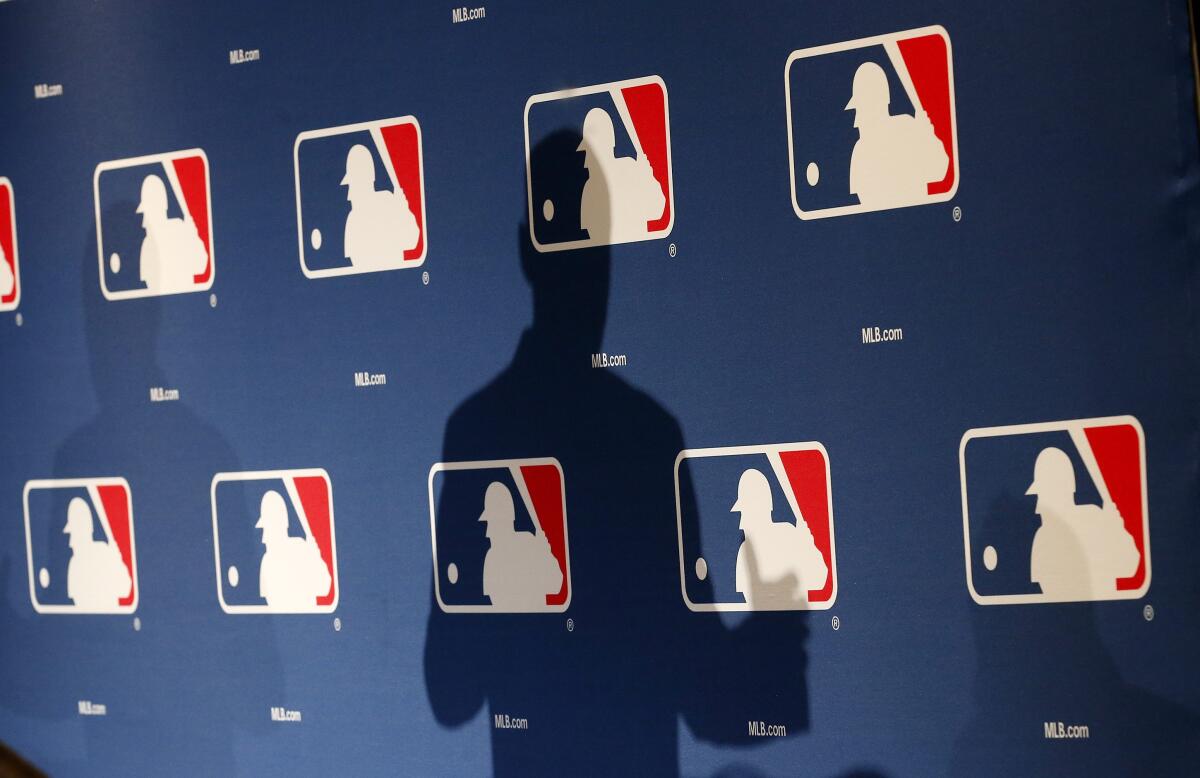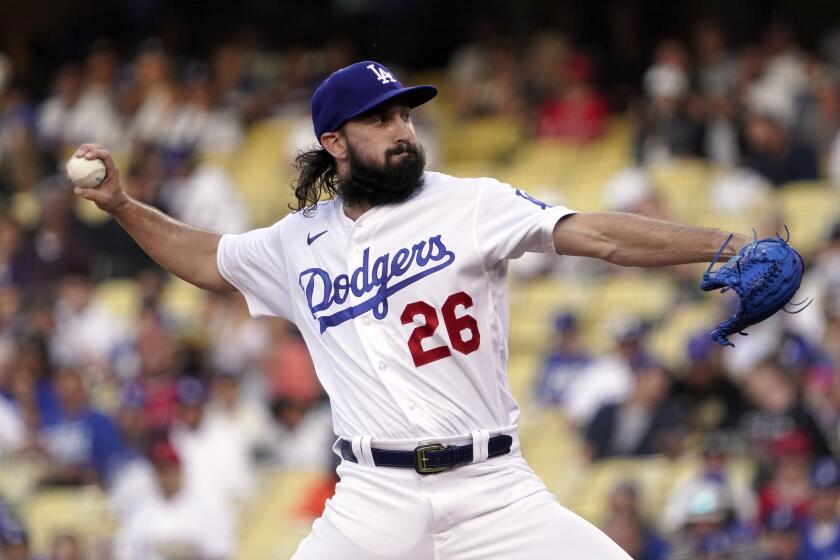Department of Justice asks federal court to limit scope of baseball’s antitrust exemption

- Share via
The Department of Justice on Wednesday formally asked a federal court to limit the scope of baseball’s antitrust exemption, the latest challenge to a century-old Supreme Court decision cherished by major league owners but increasingly criticized beyond the commissioner’s office.
In March, after the owners’ lockout ended, Sen. Bernie Sanders (I-Vt.) introduced legislation to strip baseball of the exemption. A similar bill, introduced last year by Sen. Mike Lee (R-Utah) and Rep. Jeff Duncan (R-S.C.), also remains under consideration in Congress.
The Justice Department weighed in Wednesday on behalf of three former minor league teams suing Major League Baseball for violation of antitrust law. The three teams were among the 43 eliminated by MLB in its consolidation of the minor leagues.
MLB has asked that the suit be dismissed on three grounds, one of which is baseball’s antitrust exemption. In its filing Wednesday in U.S. District Court in New York, the Justice Department did not speak to the other two grounds but asked the court to “define the exemption narrowly.”
Without the exemption, for instance, the Oakland Athletics and Tampa Bay Rays could decide whether they move, rather than the league controlling the process. Without the exemption, supporters of minor leaguers have argued, minor league salaries could increase as teams compete for players.
In Wednesday’s filing, the Justice Department argued the exemption “does not rest on any substantive policy interests that justify players and fans losing out on the benefits of competition.”
Harry Marino, executive director of Advocates for Minor Leaguers, called that statement “momentous.”
“This means the United States government sees no substantive reason why Major League Baseball teams should be permitted to collude and pay minor league players poverty wages, as they have for decades,” Marino said.
In a Supreme Court ruling against the NCAA last year, Justice Neil Gorsuch wrote that the court has looked skeptically at requests for “judicially ordained immunity” from antitrust law, citing in particular the baseball exemption that the court has refused to extend to other sports leagues. In 2015, as San Jose crashed into baseball’s antitrust exemption as the city pursued the A’s, an appellate judge called the exemption “one of federal law’s most enduring anomalies.”
Pitcher Tony Gonsolin tossed another scoreless outing and Mookie Betts hit a homer as the Dodgers beat the Angels 2-0 on Tuesday at Dodger Stadium.
The three minor league teams allege that MLB has artificially limited the number of minor league teams, at a level below the number of communities with the interest and ability to host one.
In Wednesday’s filing, the Justice Department asked the district court to define the exemption as limited to the original purpose set forth in 1922: “exhibitions of base ball”. The Justice Department cited cases involving restraints on game broadcasts and trading card suppliers.
The district court could invoke the exemption as precedent and do nothing else. However, if the court addresses the issue, the Justice Department asked the court to “define the exemption narrowly and decline to extend its scope beyond conduct that is central to the offering of professional baseball exhibitions.”
MLB declined to comment.
More to Read
Go beyond the scoreboard
Get the latest on L.A.'s teams in the daily Sports Report newsletter.
You may occasionally receive promotional content from the Los Angeles Times.












